Black History Month in 2016 is coming to an end as the last day of February looms just around the corner. Despite the extra day this year, for many people this time of celebration and remembrance is too short. Twenty-nine days just is not long enough to celebrate Black people in this country.
![[photo credit: T Thorn Coyle]](https://wildhunt.org/wp-content/uploads/2016/02/12697011_10156559006330258_5773074850995747345_o.jpg)
[Image credit: T Thorn Coyle]
Carter G. Woodson founded Negro History Week in 1926. But it would be another 50 years later, in 1976, before Negro History Week was turned into Black History month. Today, celebrations of Black people and their culture have become a staple for many during the month of February.
Last year, The Wild Hunt published its first Black History month piece, in an attempt to elevate and amplify the voices of Black people within our small but interconnected Pagan and Polytheist communities. The intersectionality of African Americans who are also a part of our spiritual communities hold additional complexities and amazing beauty, which is also important to acknowledge and celebrate this month.
Why is it important to amplify the voices of those who are historically silenced in society? Why is this important in the Modern Pagan community?
By bringing to the forefront the voices that are often unheard, we add depth, difference, uniqueness and beauty to the existing culture of our largely Eurocentric circles. The complexity of true diversity often means challenging the normalcy of the status quo.
I reached out to two Black practitioners, Lilith Dorsy and Black Witch, to get their opinion on why amplifying Black and brown voices in Paganism is important within the Pagan community.
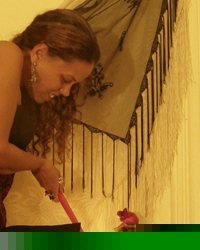
Lilith Dorsey
Amplifying the voices of Black practitioners is a vital and important for any community, but especially for the Pagan and Polytheist world because in many ways they are underrepresented and unheard. Their experience by nature is different, and also because of the situation can also frequently seem intimidating. I’m not saying that this is intentional, but extra care should be taken to make sure everyone’s experience and input is validated. Black practitioners very often have different concerns and knowledge that should be welcomed at everyone’s spiritual table in order to ensure the most beneficial experience for all. – Lilith Dorsey
Black Witch
I think it is extremely important because the Pagan and polytheist community shows a very White face, when that simply isn’t true. And anti-Blackness in these communities is quite solidified and rampant, it’s very important to combat it. Without representation, these communities will continue their problematic acts such as stealing cultures, pretending to be experts and leaders in fields they don’t have any real background in (such as Voudon or Santeria), and more. – Black Witch
In giving space to Black voices on Black History Month, we are celebrating something that holds great significance within the Black community and within Black culture. As with many historically oppressed populations, celebration of the true history of one’s culture is essential to elements of pride, identity, belonging, and sense of place. What we don’t often see in the Pagan overculture are reflections of Black people, Gods, mythologies or other types of diverse representation.
There is an intricate balance that is often dismissed throughout our interconnected communities. The lack of equity in cultural representation challenges our ability to thrive as a open and accepting religious or spiritual group.
In honor of Black History Month 2016, we here at The Wild Hunt are acknowledging this disparity in voice by highlighting Black practitioners as they speak about the importance of Black History Month, their unique ways of participating, and talking about those who influence their lives and practices.
Geryll “Dr. G. Love” Robinson
The magic is in our hystory. The power is in our ancestral connections. We are living in a 3 dimensional moment suspended across all time and space. Every February I am illuminated to something new about the hystory of humanity, the planet, and the Universe.
The dissociative effects of suppressed hystories has taken a toll on much of our society across race gender and culture. The ongoing revelation of our truths and inherent power is co-creating a global awakening of expansive souls unlike any we have seen in millennia. As many young Indigo spirits have announced this year, Black Hystories are indeed the seeds to Black Futures. Asé, amen, Aho, Namaste, Hotep. – Geryll “Dr. G. Love” Robinson
Stephanie
So much of our history is left out of mainstream education. If we crave a connection with our ancestors…then we should take the time to learn about them. I take time to learn our history by reading books and watching documentaries. I like to feel enlightened and inspired by learning about the struggles and victories of the brothers and sisters who came before us.
I would choose Malcolm X. He was always passionate, brave and never apologized for who he was. He went through major changes in his life both emotionally and spiritually. Malcolm never stopped seeking his truth. – Stephanie from California
Oh yes – it’s critically important! Because our history is not taught with an impartial voice, much of what could be inspiring or educational about Black History is not taught. There are SO many people whose stories can move us to tears, to laughter, or to action, but they are not being told in schools. Many parents don’t know the stories either, because THEY weren’t taught.
I am an Eclectic Witch with strong leanings toward Wicca, flavored by the Egyptian pantheon, and including my Native American heritage. There are multiple people I would choose to be inspired by, but the main ones are:
Madame Marie Laveau – though she is identified primarily as the Voodoo Queen, I believe I could learn a lot from her, and she was very strong in her certainty about her path.
Maya Angelou – though not identified as a witch (at least that I know of), to me she personifies the Crone. Wise older woman with a wealth of knowledge and power in her words. I would love to have spent some time talking with and to her and to study at her feet, so to speak.
Cicely Tyson – again, not identified as a witch, but she too exudes grace, knowledge, and wisdom. She’s got a quiet strength that seems boundless and I hope I move further into my Crone years with her type of grace.
Dianne Daniels
I’ve been focusing more on my personal heritage – my own Black History. That has meant for me, an involvement in family history and genealogy research. I want to know more about my father’s family (he passed away when I was only 9) and I don’t have any relatives on his side that I’m connected to. I also want to know more about my mother’s side of the family – my mother was born in Louisiana, but left at a young age. We lost track of remaining family down south after my Grandmother passed away, and I feel the loss of that branch of my family.
I’d love for Black History month to inspire individuals and families to learn more about their personal histories – their roots. Who their ancestors were, what amazing things and knowledge they were exposed to, and what principles we should be carrying forward into our own lives.” – Dianne M. Daniels
Harry Caldwell IV
Black history month is a mixed blessing for me because, while the additional attention to black stories is wonderful, I feel like the attention is reserved for that month rather than celebrated the whole year round.
My figure of choice is Dr. Cornel West. His method of Socratic questioning resonates me to my core and his depth of knowledge matched with vast experience adds a solid credibility to his words.
I am celebrating black history month by reading books on African spirituality. To further my connection to the roots of my father’s ancestry and expand my knowledge of my history. – Harry Caldwell IV
Kenya Coviak
Absolutely. Until there are no longer people who carry the legacy of racial hatred and promote historical revisionist garbage that erases us, the need will be here.
Mayor Coleman A. Young. He kept it real, even when it was uncomfortable. He spoke on things that people tried to deny, even in the face of the evidence. He was wise, outspoken, and a man whose example of honor is one I aspire to emulate. And he made having a sometimes profane manner of speech not be a hindrance, but an art. – Kenya Coviak aka Mistress Belladonna.
I want to give mad respect to a historical icon and hero of the the Jamaican people, Queen Nanny of the Maroons, fought bravely and was executed for trying to keep her people from being recaptured into British slavery in Jamaica. Her fierce spirit lives in me.
I would have loved knowing Huey P. Newton, one of the original Black Panthers. And I wish I had known Tupac Shakur. Both men loved Black people unapologetically and never allowed others to curb their devotion to our freedom. Neither man allowed anyone to police their “tone” or customize their message for fragile ears. Both men were warriors and were unwavering in their message.
Beverley Smith
I think my greatest influence has been the late, great Ida Wells-Barnett. During a time when lynching was legal and folks could pack a picnic lunch and dine with their children under the dangling murdered men’s corpses, during a time when families could pose under strange fruit and get their photo turned into “Wish You Were Here” postcards, Ms. Wells-Barnett was a fearless protestor against lynching, curbside justice, and the lack of due process. At a time when Congress did not take a black woman’s testimony seriously, at a time when she could have – at any time – become a lynching victim herself, Ida Wells-Barnett spoke out with a loud voice against the System and never flinched.
Every time I read of another state-inflicted death on another unarmed Black person, I feel the pain. I feel the sorrow. I feel the anger. I feel the desperation. And then I feel the resolve and determination of Ida B. Wells-Barnett and I feel stronger. And I know that the love of millions have my back.” – Beverley Smith
It is amazing for me to explore and hear from other African American Pagans and connect to the cultural stories and heroes. I have always felt a spiritual connection to the values and mission of the Black Panther Party, its commitment to community and the sense of sacrifice that they embodied for the people. It is a very spiritual act for me to say “All Power to the People” at my altar, one that I feel reverberates through space and time. Whether I am connecting to the essence of Huey P. Newton or Bobby Seal, to Angela Davis or Elaine Brown, to James Baldwin or Frantz Fanon, the power of my people have a strong presence at the core of my personal magic.
![[photo credit: T Thorn Coyle]](https://wildhunt.org/wp-content/uploads/2016/02/12697098_10156499681870258_3328639543373760758_o.jpg)
[Image Credit: T Thorn Coyle]
The more that diversity is celebrated within our Pagan and Polytheist communities, the more we see that there are many different reflections of the divine in the varying faces of our circles. Black people continue to show incredible resilience within America and around the world. Within the Pagan community, Black practitioners of magical paths show a level of depth that is often kept out of our mainstream Pagan overculture. There is an intricate balance of holding the magic of a lineage of historic power and pain, while discovering and integrating the lost stories of our ancestors. It is quite powerful to hear how many different practitioners of African descent incorporate these varying pieces into their own practices, and to contemplate the beauty that these differences add to our collectives.
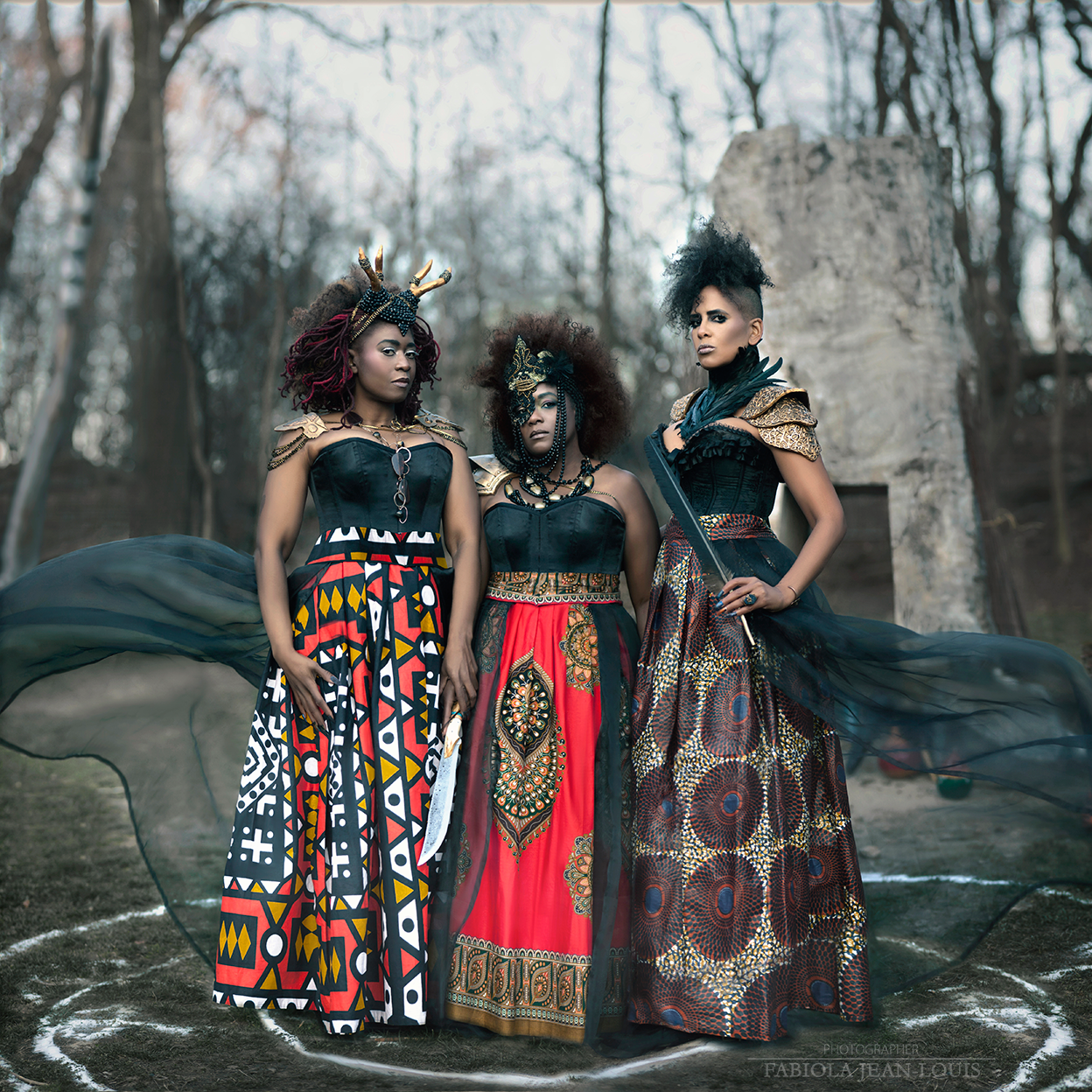
[Photo Credit: Fabiola Jean-Louis]
The contributions of Black people to American history, and within the world, should be celebrated and remembered. As the month of February closes for 2016, let us all take a moment to reflect on a world that has been enhanced by the contributions of those with African descent. Let us contribute to celebrating the amazing reflections of Blackness that we see in all areas of our society, and how that energy impacts and enhances our Pagan and polytheist communities.
* * *
This column was made possible by the generous support of the members of Come As You Are (CAYA) Coven, an eclectic, open, drop-in Pagan community in the San Francisco Bay Area.
The Wild Hunt is not responsible for links to external content.
To join a conversation on this post:
Visit our The Wild Hunt subreddit! Point your favorite browser to https://www.reddit.com/r/The_Wild_Hunt_News/, then click “JOIN”. Make sure to click the bell, too, to be notified of new articles posted to our subreddit.
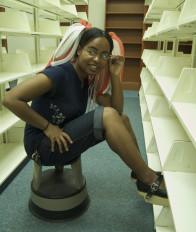
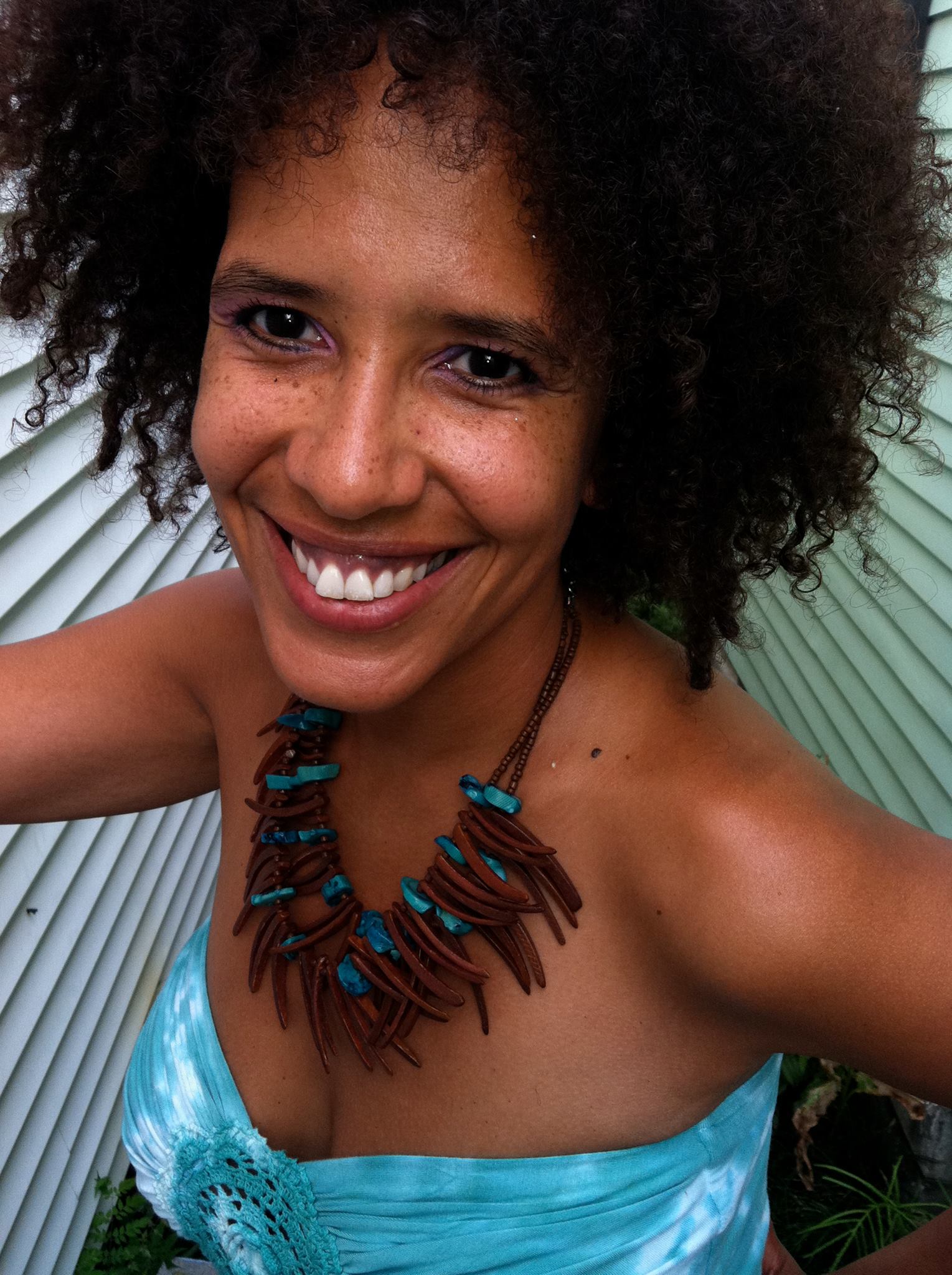

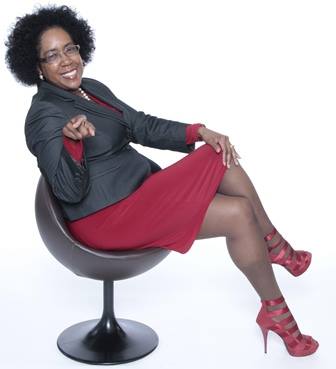
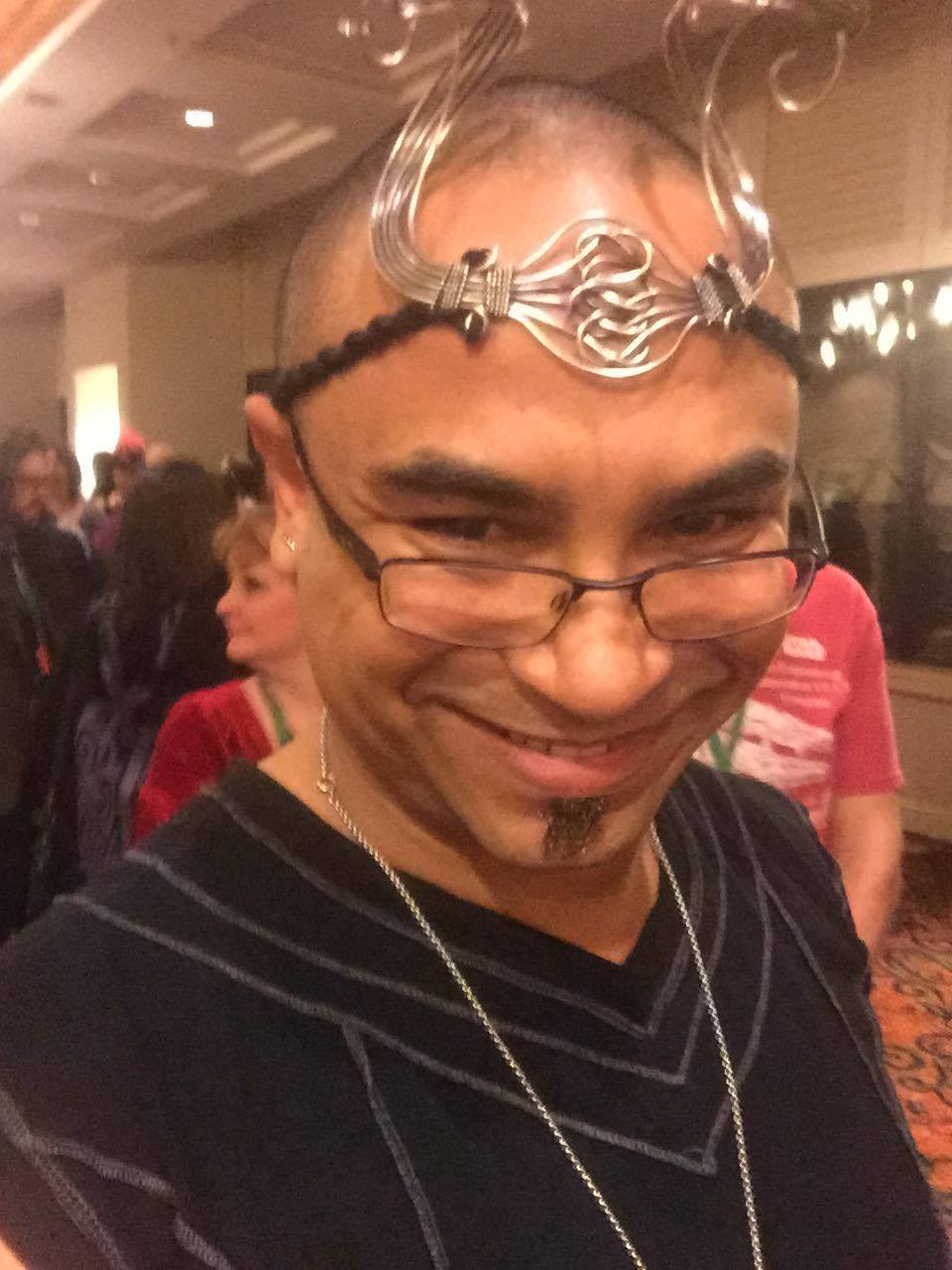

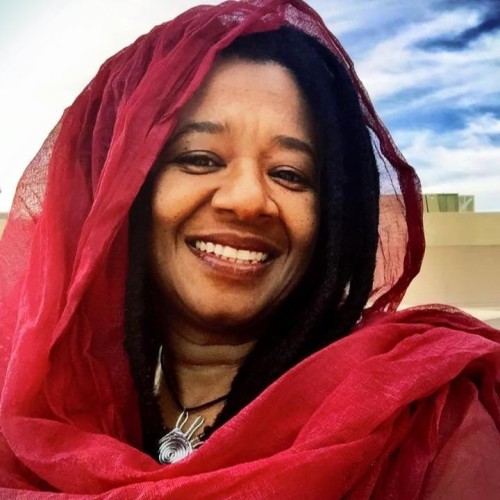
“Antiblackness” in the greater pagan community? Excuse me? There’s a huge difference between a community being “antiblack” and a community having low numbers of a certain ethnic group because a larger percentage of that ethnic group prefers another community, in this case, the xtian one. Personally, I would prefer our African American sisters and brothers return to their pagan, or even Muslim, roots. Xtianity is the religion of the slave owner and I still see way too many blacks consoling themselves with the “promise of heaven” instead of fighting for justice today. While I appreciate the fact that these ladies have picked out valued elders to emulate, I can’t help wondering if they should instead be authoring books.
Some of them (Crystal Blanton, Lilith Dorsey) are authoring books…apparently you’re not reading them.
Maybe you should reread her specific references to anti-Blackness. Cuktural appropriation and thievery are rife.
That said, Vodun and Santeria really aren’t Pagan, and I find it troublesome that they’re often under the Pagan umbrella, which is majority White. This perpetuates the anti-Black culture. It’s been happening for quite some time, but now seems to be crescendoing.
I don’t follow the logic that goes from inclusion of Vodun and Santeria under the Pagan umbrella, to perpetuating anti-Blackness. Maybe it’s because I’m a civil rights era survivor, but I can’t get my head around how including someone is an act against them.We spend a lot of angst trying to define the Pagan umbrella. My own definition is my gut: If it feels Pagan, it’s Pagan. The practical definition seems to be non-Abrahamics who get hassled by Abrahamics. Yes, there are some ambiguities, but that doesn’t bother anyone else who tries to define the Pagan umbrella 😉
I go by how the non-White practitioners identify. I know many who have experienced the downside of experimenting with being part of the Pagan umbrella. Those quoted here may wish to be included under that umbrella. I wish them well in their dealings.
When I was just getting into Paganism I was exposed to a lot of non-European ritual, including ADR. I heard none of this. Of course that was 30 years ago. Perhaps some of the folks who experienced an anti-Black vibe could write about it for TWH. I’m not swayed by talk of appropriation, because I know human cultures have always rifled one another’s contents with wild abandon.
As a White rose, I have started to read and post links to Black, Indigenous, and other POC voices. Because my religion requires the complete story, and respectful worship instead of colonization. I appreciate each of the Pagan Witches who take the time and effort to share their wisdom publicly.
g75401, I used to be where you are, but I’ve come a way on my journey to become less racist. You should try listening instead of talking for a while.
The Christian share of the U.S. population is declining, while the number of U.S. adults who do not identify with any organized religion is growing, according to an extensive new survey by the Pew Research Center. Moreover, these changes are taking place across the religious landscape, affecting all regions of the country and many demographic groups. While the DROP IN CHRISTIAN AFFILIATION is particularly pronounced among young adults, it is occurring among Americans of all ages. THE SAME TRENDS ARE SEEN AMONG WHITES, BLACKS AND LATINOS; among both college graduates and adults with only a high school education; and among women as well as men.
http://www.pewforum.org/2015/05/12/americas-changing-religious-landscape/
Thank you for this, Crystal. It’s a great read.
Wishing Dianne Daniels the best in her search for her roots!
I love how you cite Malcolm X when neopagans, even in this site, have smeared some of the vilest attacks against Islam and Muslims. Maybe that’s why you didn’t mention Islam anywhere near him, or anywhere in the article at all, for that matter. And it’s funny how you talk about Black History Month and Eurocentrism and yet you barely mentioned any indigenous African tradition, not just Islam which is one of the quintessential forms of religiosity among a good portion of Black Africans (and has been for over a thousand years), but also others like Vodoun and the Yoruba religion, or heck, even Kemetism, an ancient religion that has been largely appropriated by White neopagans from Europe and the US without them ever mentioning this fact and is part of the general appropriation of Egyptian culture by the West, a fact mentioned by Martin Bernal in his famous book “Black Athena”. But of course, you only mentioned Westernized Blacks who don’t say anything aboug indigenous religions from Africa.